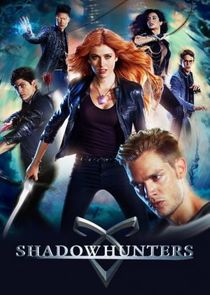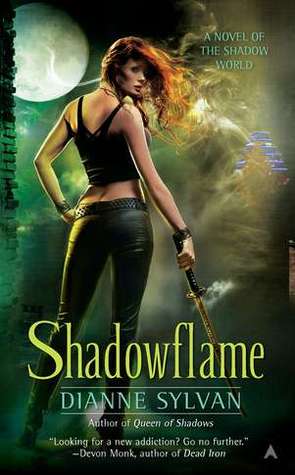Trigger warning for discussions of violent homophobia and rape
Miranda has been Queen of the South for three months now. As is custom, when she married her husband David Solomon, the Prime of the area, the other Primes pay a visit to show their respect of the new couple. Although Miranda loves David, she is very new to the shadow world and still feels the call of her human life. Learning to be Queen for Miranda means accepting that her 350 year old soulmate has had a long life without her and that comes with consequences. In between all of the political intrigue and trying to protect her human friends, Miranda has to come to terms with the new world that she has entered and all the costs that come with it.
Spoilers Ahead
When I read some of the reviews on Goodreads those who chose to give
Shadowflame a low rating seemed largely to do so based on David's infidelity. Obviously, these are people who go into an urban fantasy/ paranormal romance book with the belief that once a couple pair up that they shouldn't deal with real world problems. I understand that there might be some who find David's infidelity a problem based on this; however, the problems with
Shadowflame extend far beyond that.
In this book we learn that David had a past same-sex relationship of 10 years with Deven. There could be a lot of positive to say about having a bisexual co-protagonist - except the book makes it very very very clear that he's totally not bi, honest (there's more than a whiff of no homo about the whole thing)
This just sets the tone for the depiction of the same sex relationships involved. David and Deven split up not because of actual reasons but because of the magical Signet (which now demands David be with Miranda and Deven with Johnathon - screw true love, the Bling has spoken). While we could view this as a tragedy that magic has destroyed a long term, loving relationship, instead what we see is the spiteful, conniving Devon trying to steal Miranda's man (how very dare he!). Her relationship with David is presented as not only superior in her eyes (she decides she has the advantage because she "has a vagina" yes, penis + vagina is the one true relationship!) but also in general depiction - with Deven and Jonathon's relationship being almost chaste and certainly less passionate and powerful than Miranda and David.
To rub some salt into the wounds, we also have David described as "swishy", by Kat, Miranda's best friend. Miranda and Kat then proceed to fetishise the idea of David and Deven together and, to crown it all, Deven apparently working long term to make sure Miranda and David got together. Yes, this gay man devoted time and energy to bring his true love together with a woman to form a Real and Proper bling-sanctioned relationship.
Honestly, I could go on for pages about the trainwreck here (I haven't even touched on the gratuitous and graphic depiction of homophobia or the implication that Deven is bitter and nasty because of his origins that Miranda happily clubs him with), but the review would end up ridiculously long, especially considering the other many many problems with this book.
I'm starting to think that no Shadow World book is complete without some form of gratuitous rape involved. In this case, Prime Hart comes to pay his respects to the new couple and with him he brings his string of sex slaves. Prime Hart tortures these women, starves them and rapes them repeatedly. Though Hart keeps a stable of nine women, he chooses only to bring four of them on his state visit. Sylvan includes a very graphic description of Cora's rape. It's gratuitous and made further problematic by Cora's suggestion that women who give up after years of torture, rape and starvation are weak. Everyone in the Shadowworld is aware of how Hart treats women and yet no one intervenes. This is explained by the misogyny of the Shadowworld which seems to dictate that women are to be silent and stand behind their men. When Miranda brings this to the attention of David, he is unwilling to risk a war to free these women. David expressly forbids Miranda to intervene unless one of the women asks for sanctuary. To be clear, we are supposed to think of David as a complicated man but a good man but good people don't allow four women to be raped under their roof without trying at least to intervene.
I don't even understand why this story line occurs at all. Cora ends up being paired up with another visiting Prime and disappears from the story. I can only assume that Cora will come to play a role in the story as it moves forward but it still makes her violent rape irrelevant to the story. In fact, Hart's misogyny was well established before the revelation of sex slaves and torture, particularly given that his favorite terms for women in include, "girl, whore and slut". None of this was necessary to the story and was a side plot at best.
People of colour really didn't fare much better in this novel. Of course we have Faith, David's second in command but she seemed to be there to issue orders and to be confused about who to support when David was unfaithful to Miranda. I don't understand Faith's confusion given that it was revealed at the end of Shadowflame that she has been in love with David for many years. Faith is someone that David trusted enough to tell about his intimate feelings for Deven and they have years of established friendship between them, yet.
Other than Faith, the people of colour essentially are background characters who either die for the sake of Miranda's guilt as her manager Denise MacNeil did or get a passing mention the way that Tanaka the signet of Japan does. Then there are those that fall into the servant class. The most obvious being the Mexican maid Esther, leaves herbs on the mantle for healing and safety and seems to exist to simply nurture Miranda and David. She is a walking avatar of her Mexican identity and has no individuality whatsoever. Esther exists to worry about Miranda's well doing and seems to have no life of her own.
Then there's Lali who has developed her own form of Yoga for vampires. When we first meet Lali, she is a member of Miranda's protection detail. In reality, Lali works for Deven and has been assigned to keep an eye on the Prime and his Queen. We learn nothing about her beyond her practice of yoga and service to Deven. She's not a person but yet another avatar of her race. If that were not enough, Lali is unceremoniously killed off - fodder in a war of revenge against Miranda.
For all of the characters of colour floating around, none of them are actually developed and quite a few of them simply die. They are blank without personality and when they do die, it's not about the loss of their lives but about the supposed pain of the white characters.
As I said at the beginning of this review many of the people upset with
Shadowflame are upset because of David's infidelity. It makes sense to me that David couldn't simply walk away from a man that he had been in a romantic relationship with for ten years. The problem is that David's bisexuality is repeatedly denied and that his relationship with Miranda is set up to be the one true love. Sylvan makes a point of giving a consequence to any character who says an anti gay slur but that certainly doesn't make this book LGBT positive. It's riddled with homophobia.
As much as the misogyny is awful at least there's a lot of push back against it. Miranda makes it clear that she will not be the little woman standing behind her man but will rule as an equal. She is absolutely a strong character at this point. Sylvan however does have Miranda developing new talents which does make me wonder if this is a thing which will continue to happen as the series progresses for story reasons rather than common sense.
The base story behind Shadowflame is good and compelling but it's just marred with homophobia, gratuitous rape and cardboard inclusion of people of colour. It's impossible to give any of it a pass. Shadowflame reads like an attempt to be inclusive gone horribly horribly wrong. It's not enough to include marginalized characters one must humanise them and not play on bigotry. I don't expect homophobia to cease to exist in any world but how its portrayed is a matter of great importance. It will never be enough to simply disavow slurs, one must actively not engage in homophobia or minimize relationships between people of the same sex. On this account, Sylvan has absolutely failed despite her bisexual co-protagonist.

















